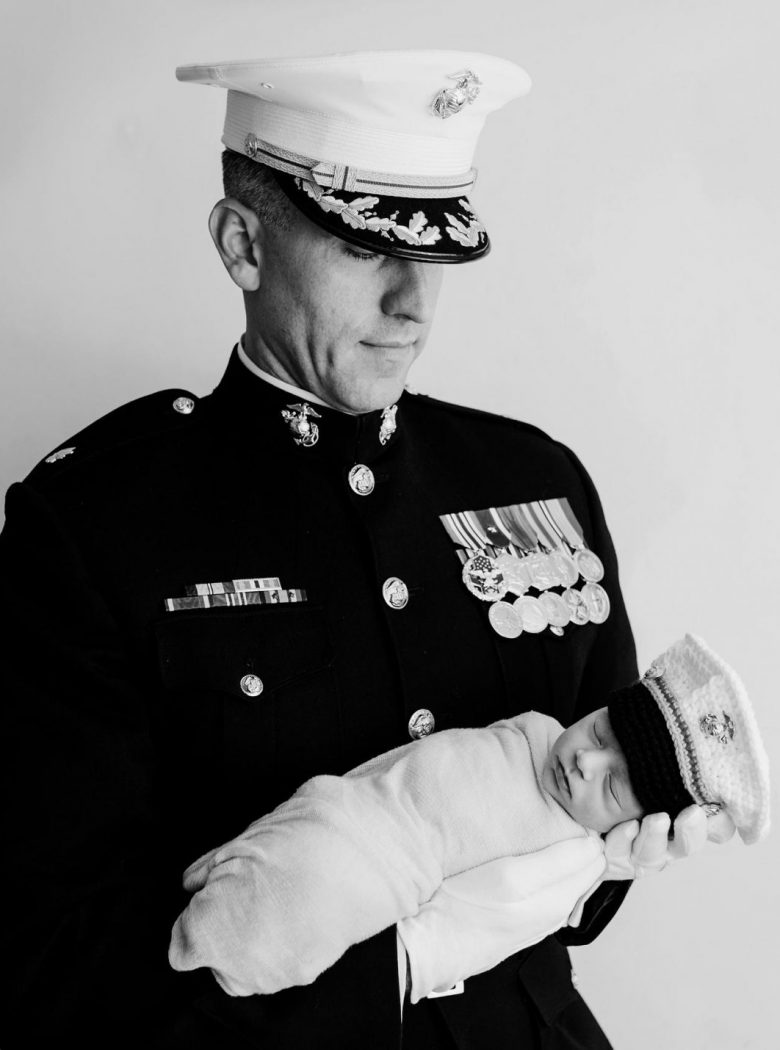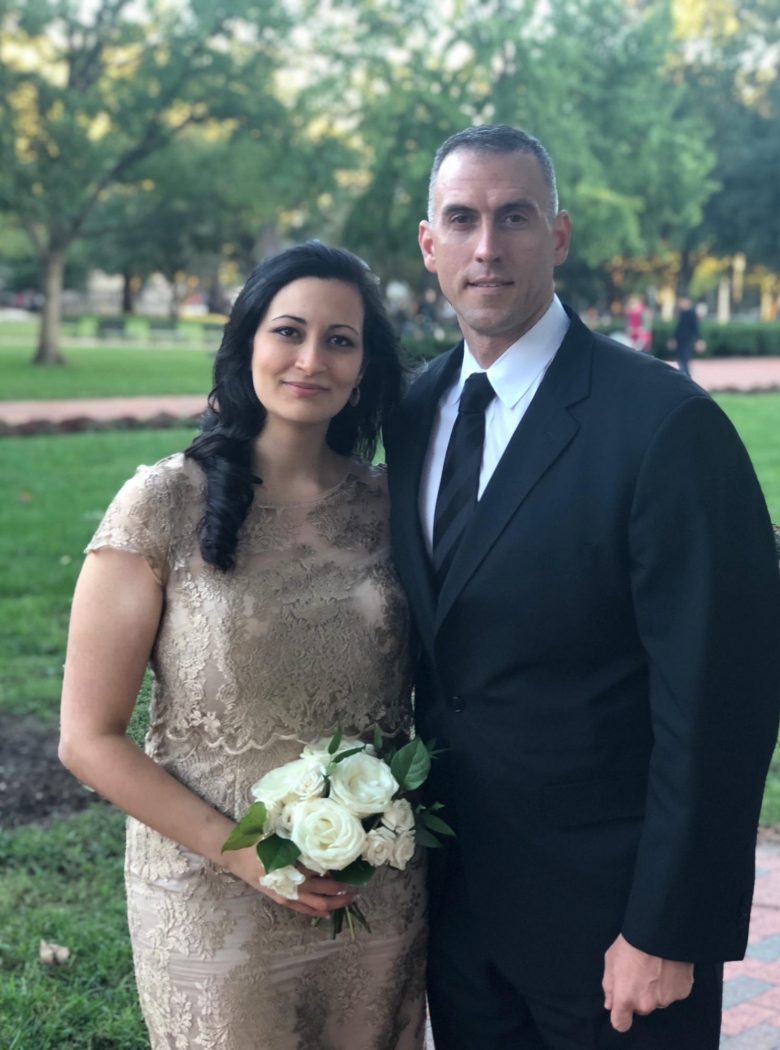Stuttering and Sobriety
by Jordan Northrup
Ring…Ring…Ring…someone was calling me on my cell phone. I was on my way from the bedroom to the kitchen, stumbling and weaving really, so I could answer the call. Ring…ring…ring. Who was it? I was dizzy and my brain was fogged from the massive amount of alcohol I’d been consuming for the last three days. I reached the kitchen and my eyes focused on the cell phone sitting on the counter. Something told me not to pick it up, but I did anyway. “H-H-Helllllllllllllllllllllllll-O?” My greeting probably sounded incoherent to the caller. I was so drunk they couldn’t tell if I was stuttering or slurring…or both. “Jordan! What is wrong with you?! I can tell you’re drunk! It’s Tuesday morning. Why aren’t you at work…what am I doing with you?” Click.
The Beginning of Addiction

The random caller was my fiancé calling to chat on her morning commute to the office and I’d been awake the entire night. For the life of me, I couldn’t remember why I’d gotten hammered in the first place. I had been on a roll. The many weekends of resisting temptation, reading my Bible, avoiding the beer aisle at the store, staying out of liquor stores, and staying connected to others for accountability now seemed wasted. Wasted on a fleeting six pack of beer and a fifth of liquor. Why had I blown it? I looked down at my phone. My fiancé had hung up on me. The call was over, but my heart was beating fast; the shame and disgust were impossible to ignore. I was exhausted and nearing blackout. I glanced at the clock before I passed out on the couch; it was 8:07 a.m.
My own personal series of compromises had led me to a place of drunkenness and depression. By the time I was 34, I had earned a bachelor’s degree in economics and a master’s degree in business. However, if drinking could be taught, then I was far more accomplished in that area—a PhD with honors. Alcohol was dictating the trajectory of my life. I craved what alcohol did for me but hated what it
was doing to me. The bottom line is that alcohol had become my best friend and my worst enemy. I was educated and accomplished, but I wanted to escape the guy in the mirror so badly that I felt I needed the help of alcohol to do it. The man in the mirror looked normal enough. Tall, muscular, brown hair, hazel eyes. He wore a uniform in service to the country. He appeared to have it all together. But it was an illusion. He had become very good at showing people what he wanted them to see. I could be a Marine Officer, a war veteran, an athlete, a musician, a historian, a reader, a chef, a golfer, a friend, a son, a brother, and a Christian. I could be whoever someone wanted me to be; anything but the real me. The real person behind the mask was weak. I doubted myself all the time. I tried to compensate for life’s injustice of giving me a stutter in all the wrong ways. The real me was selfish, conniving, lustful, and immoral. The real me was someone who stayed up all night getting drunk. I was full of regrets, and I found it more and more difficult to shove away the realization of what drinking had done to me… what I had done to myself.
Drinking was a way for me to ignore my fears and step outside of the social box in which I’d placed myself. But like with so many addictions, it didn’t start out that way. You see, I was born with a stutter, and when you have a stutter, you train yourself to sit in the back of the room and keep your head down. It’s a natural self-preservation mechanism. I ended up as a shy kid who was too afraid to make new friends or speak up in class. My heart sank whenever I was called upon to read aloud to the students; the mocking whispers in the classroom or the bullying on the playground confirmed all my fears. I was damaged goods. It didn’t get any better as I got older either. I was always on the fringe of my peer group. I wasn’t popular, even when I tried to be. I was just the kid who stutters – the only one at my school.
Outdrinking My Stutter
After I turned 18, I was desperately looking for a way out of the box in which I’d placed myself. I wanted to start over; no one needed to know my history. I wouldn’t be able to kick the stutter, but at least I wouldn’t have all the baggage from high school following me around.
One such opportunity presented itself in college. I chose a school out of state; close enough to get home when I wanted, but far enough away where I could break free. I overcompensated for my introversion by making friends with partiers; the kids who skipped class, drank themselves silly, and took risks. My niche was buying alcohol for underage kids; it was a lousy thing to do, but it gave me an identity apart from stuttering. Students didn’t care how I spoke if I could buy them alcohol. Once I started down that road, it was only a matter of time before I came to consume more alcohol than I purchased for others.
But try as I might, I couldn’t outdrink my stutter; it was always with me. As my college years came to a close, I still hadn’t found answers to meaning and identity. Who was I? I was 23 years old, abusing alcohol, with no job prospects after graduation. I was lost as could be. Then something big happened. Terrorists flew two planes into the World Trade Center on 9/11 and the whole world changed. While I grieved for the nation, I sensed opportunity; I decided that I would reinvent myself through the military.
I chose to join the United States Marine Corps. The Marines gave me a poise and confidence that I could never have achieved on my own. Earning the title, U.S. Marine, placed me into a brotherhood that very few Americans could claim. Of course, I continued to stutter, but with a higher confidence level, I had the tools and the fortitude to come to terms with the embarrassment caused by my speaking abilities. Despite these challenges, I thrived in my new career. This new trajectory catapulted me into leadership situations that I didn’t think were possible. A mere two years earlier, I was a senior college student coming off a weekend bender, and now I was returning home from leading a 75-Marine platoon through the streets of Fallujah, Iraq. It didn’t seem real, but it was. Professionally speaking, I had been transformed into a high-caliber combat leader. If only that new identity had been enough.
Through it all, my stutter continued to plague me. Weekly staff meetings and public speaking were very difficult for me. I knew what I wanted to say; I had the experience to contribute to the conversation, but my mouth just wouldn’t

cooperate. I drowned my hurts and frustrations with my old friend, alcohol. Alcohol never made fun of my stutter. Alcohol never broke a date. Alcohol was always there to hang out, especially after the bars closed.
My drinking intensity increased to the level that I had a serious alcohol problem by age 29. I knew I needed help but found myself powerless to stop. I couldn’t bring myself to put the bottle away. I wasn’t a functional drunk. I couldn’t have 2-3 drinks throughout the day to take the edge off. No, I was a binge drinker. Friday evening would find me hunkered down in my house with a refrigerator full of beer and liquor. Once I took that first drink, I went to blackout. I’d wake up at 3 AM, start in again, and go all the way to the next blackout.
Breaking Free from Alcoholism
This trend progressed until I was 32 and found myself getting married. I have no idea how I managed a relationship through the drinking, but I did. I thought getting married was the victory I needed in my life. I was wrong and she left me after 15 months. When I fully understood that my marriage was over, my entire world turned upside down. I had finally hit my rock bottom and I was willing to listen.
The church we attended had a counseling center; I made a call, and they paired me up with a guy named Donn who had experience in men’s substance abuse issues. Now let me tell you about Donn. He was a quiet man, a retired Navy Intelligence officer. Donn took a different tactic than previous counselors I’d seen. He didn’t give me practical strategies to ween off alcohol – no hiding the keys/wallet, no stepping down gradually. He told me those things are distractions.
Every Saturday afternoon for 2 years, I sat on his couch, and we discussed matters of the heart. He asked me “why do you do what you do?” He was less interested in how much I was drinking – he wanted to know why I was drinking. I told him I didn’t know.
We were having a tense exchange one afternoon when he leaned in and looked me right in the eyes. He pointed right at me and said, “who are you?” “Who am I? What do you mean, who am I?” He said, “Are you a Marine? Are you a failed husband? Christian? Are you a stutterer? Are you a drunk? Are you a loser? Are you worthless?”
I had to sit back for a minute and think…In a small, quiet voice, I said “I don’t know… I think I’m all those things…” The emotions came to the top and a tear rolled down my cheek.
Donn sat back with a sigh and smiled at me. He said, “let me tell you who you are through the eyes of God.”
I didn’t realize it at the time, but pursuing my passions for all those years was really a misguided search to answer those questions. And now I had my answers. Finally, I felt ready to begin the healing.
I claim April 19, 2014, as my first real day of sobriety. It was a beautiful spring morning. I’d had some drinks that weekend, but this day felt different. The sun was shining. The air was warm. And something in my spirit told me that today was the first day of the rest of my life. I kept this feeling in the forefront of my mind, and before I knew it, I had managed to string thirty days of sobriety together. I was ecstatic, although I tried not to be overly confident.
As the spring ended and turned into summer, one month of sobriety became two, and then three. As I approached the fourth month, I became nervous. Up to that point, it had been the longest period of time, military deployments notwithstanding, that I’d been sober in 14 years. I shared my fears with my counselor and my network of men. I prayed like I’d never prayed before. But mostly, I made sure I didn’t have one single idle minute. I knew that if I had nothing to do, alcohol would come looking for me.
The days turned into weeks and before I knew it, the fourth month had passed, and I was still sober. And wouldn’t you know it? Three months became six, and six months turned into a year. Then one year became two, and two became nine and on it goes.
My sobriety continues to this day.
These days I am remarried with two beautiful children. I write books and speak about my life to anyone who will listen in the hope that they too will find victory over their addictions.
I still struggle with stuttering from time to time…and I’m ok with that.
Jordan Northrup is a native of Lima, Ohio. From an early age, he developed a love for reading and writing, and currently has more than 1,000 books in his library. He is a 19 year veteran of the United States Marine Corps and has three combat tours to Iraq and Afghanistan. Jordan is also a real estate investor, entrepreneur, and a woodworking enthusiast. Jordan has a heart for men and women suffering from addiction and travels around the country speaking to audiences about God’s grace and mercy.
When he is not leading Marines or building businesses, Jordan enjoys playing golf, playing the piano, and spending time with his wife and children. Jordan resides with his family in the Washington, DC/Northern Virginia area.
